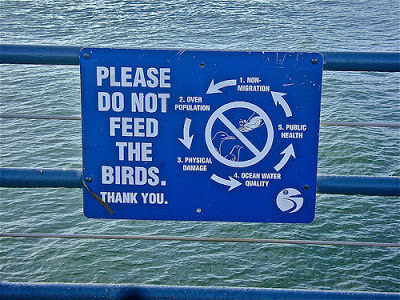Trusting the Process
Hey gang! What a wild/fun week I had last week. We went to the Mouse House in Orlando, got up close and personal with Harry Potter, and drank our share of the butterbeer (think sugary cream soda with a SUPER sugary cream topping ... yeah, it's that bad for you, and that awesome).
 Enjoying a cold drink in the Hog's Head Tavern- No, that's not butterbeer. ;-)Anyway, I'm back (physically at least) and ready to make the final push towards the publication of the second Moonsongs book. With a little luck, it'll be out in December. And I'm totally not bragging here, but I'm very excited for people to read it. I think the story is bigger, and in some ways better, than the first.
Enjoying a cold drink in the Hog's Head Tavern- No, that's not butterbeer. ;-)Anyway, I'm back (physically at least) and ready to make the final push towards the publication of the second Moonsongs book. With a little luck, it'll be out in December. And I'm totally not bragging here, but I'm very excited for people to read it. I think the story is bigger, and in some ways better, than the first.
Jenny (the mc) is really beginning to stretch her legs as a character. She gets pulled deeper into the supernatural world her tribal ancestors have fought against for so many generations, and learns that not all of the scary things out there want to eat you--some just want you dead. Plus, there are witches, both cool and evil.
Basically, there's just a lot going on, and I think it'll be a fun ride for folks who enjoy True Blood-esque adventures. I've had a blast crafting it, that's for sure.
TRUSTING THE PROCESS
 Photo credit to Lynn Kelley, WANA Commons But now it's time for the final polish. That means applying editorial feedback. Some of which is quite straightforward, and pretty painless. Change this word, rearrange that sentence, etc. But some of the changes aren't so easy to execute...
Photo credit to Lynn Kelley, WANA Commons But now it's time for the final polish. That means applying editorial feedback. Some of which is quite straightforward, and pretty painless. Change this word, rearrange that sentence, etc. But some of the changes aren't so easy to execute...
I always try to make sure my stories go into the 'editor' phase as polished as I can make them. That's for two reasons: 1) I don't want to purposefully make my editor take up drinking if they don't already. 2) It translates to less work for me on the other side.
What does sending it in as polished as possible mean for me? Typically 3 drafts pre-beta/critter work overs, and 1 to 2 more post beta/critter. And sometimes, if the beta/critter feedback results in major changes, it might go into another round of beta/critter--and more drafts follow. THEN it goes to the editor.
Sounds like a lot right? IT IS! But I'm someone who likes to feel confident about something before moving onto the next stage. For me to feel confident in a piece of writing, I need to hear from several different perspectives that I've essentially captured what I set out to do with a particular story.
These Moonsongs stories are a bit of a different beast, because they're novelettes--which translates to 'longer than a short story, shorter than a novella'. So a big part of my objective is that the plots stay tight, and the pacing zips. I want them to be a movie-like experience. Something you can enjoy in 2-4 hours, and feel that you've been entertained when you finish.
That's where the editor really pays off.
Story # 2 has been through multiple critters. While none of them said it was perfect, the feedback was 99% great, and I addressed nearly every quibble the critters had in rewrites prior to sending it off to the editor.
That's the point where you begin to think--no matter how many times you've been through this process and know better--"I've done it! This is a great story as is." You can't help it. You love your critters. You've read their work, and trust them implicitly. Furthermore, you're really beginning to love the story again. (Trust me, you hate the dang thing at several points during this cycle.)
Trusting the process is oh so important at this juncture. When those edits come back, and you see the number of things you've missed--or just screwed up--in your 'great story' it feels like starting over in some ways. (But you're totally not!)
You might even be tempted to cross your arms and say, "Bah, readers already like it. Why should I chop out two pages of the opening scene for the sake of pacing?"
The answer is simple: Because you want the story to be everything you dreamt it COULD be. The only chance you have of doing that is making it as tight as possible. That means heeding your editor's advice, listening to your critter complaints, and doing 2 more drafts beyond the last draft you vowed you'd ever do.
It can be disheartening. It can be fantastic. But it's all part of the process, and that you have to trust.
~EJW~
 Enjoying a cold drink in the Hog's Head Tavern- No, that's not butterbeer. ;-)Anyway, I'm back (physically at least) and ready to make the final push towards the publication of the second Moonsongs book. With a little luck, it'll be out in December. And I'm totally not bragging here, but I'm very excited for people to read it. I think the story is bigger, and in some ways better, than the first.
Enjoying a cold drink in the Hog's Head Tavern- No, that's not butterbeer. ;-)Anyway, I'm back (physically at least) and ready to make the final push towards the publication of the second Moonsongs book. With a little luck, it'll be out in December. And I'm totally not bragging here, but I'm very excited for people to read it. I think the story is bigger, and in some ways better, than the first. Jenny (the mc) is really beginning to stretch her legs as a character. She gets pulled deeper into the supernatural world her tribal ancestors have fought against for so many generations, and learns that not all of the scary things out there want to eat you--some just want you dead. Plus, there are witches, both cool and evil.
Basically, there's just a lot going on, and I think it'll be a fun ride for folks who enjoy True Blood-esque adventures. I've had a blast crafting it, that's for sure.
TRUSTING THE PROCESS
 Photo credit to Lynn Kelley, WANA Commons But now it's time for the final polish. That means applying editorial feedback. Some of which is quite straightforward, and pretty painless. Change this word, rearrange that sentence, etc. But some of the changes aren't so easy to execute...
Photo credit to Lynn Kelley, WANA Commons But now it's time for the final polish. That means applying editorial feedback. Some of which is quite straightforward, and pretty painless. Change this word, rearrange that sentence, etc. But some of the changes aren't so easy to execute...I always try to make sure my stories go into the 'editor' phase as polished as I can make them. That's for two reasons: 1) I don't want to purposefully make my editor take up drinking if they don't already. 2) It translates to less work for me on the other side.
What does sending it in as polished as possible mean for me? Typically 3 drafts pre-beta/critter work overs, and 1 to 2 more post beta/critter. And sometimes, if the beta/critter feedback results in major changes, it might go into another round of beta/critter--and more drafts follow. THEN it goes to the editor.
Sounds like a lot right? IT IS! But I'm someone who likes to feel confident about something before moving onto the next stage. For me to feel confident in a piece of writing, I need to hear from several different perspectives that I've essentially captured what I set out to do with a particular story.
These Moonsongs stories are a bit of a different beast, because they're novelettes--which translates to 'longer than a short story, shorter than a novella'. So a big part of my objective is that the plots stay tight, and the pacing zips. I want them to be a movie-like experience. Something you can enjoy in 2-4 hours, and feel that you've been entertained when you finish.
That's where the editor really pays off.
Story # 2 has been through multiple critters. While none of them said it was perfect, the feedback was 99% great, and I addressed nearly every quibble the critters had in rewrites prior to sending it off to the editor.
That's the point where you begin to think--no matter how many times you've been through this process and know better--"I've done it! This is a great story as is." You can't help it. You love your critters. You've read their work, and trust them implicitly. Furthermore, you're really beginning to love the story again. (Trust me, you hate the dang thing at several points during this cycle.)
Trusting the process is oh so important at this juncture. When those edits come back, and you see the number of things you've missed--or just screwed up--in your 'great story' it feels like starting over in some ways. (But you're totally not!)
You might even be tempted to cross your arms and say, "Bah, readers already like it. Why should I chop out two pages of the opening scene for the sake of pacing?"
The answer is simple: Because you want the story to be everything you dreamt it COULD be. The only chance you have of doing that is making it as tight as possible. That means heeding your editor's advice, listening to your critter complaints, and doing 2 more drafts beyond the last draft you vowed you'd ever do.
It can be disheartening. It can be fantastic. But it's all part of the process, and that you have to trust.
~EJW~
Published on November 06, 2012 16:05
No comments have been added yet.



